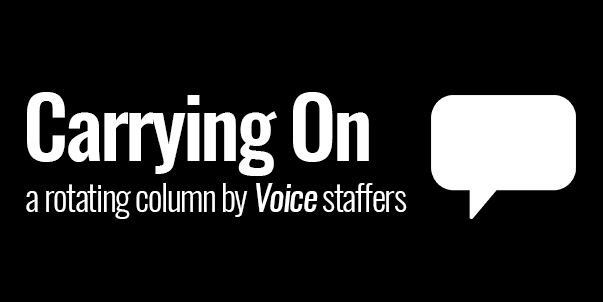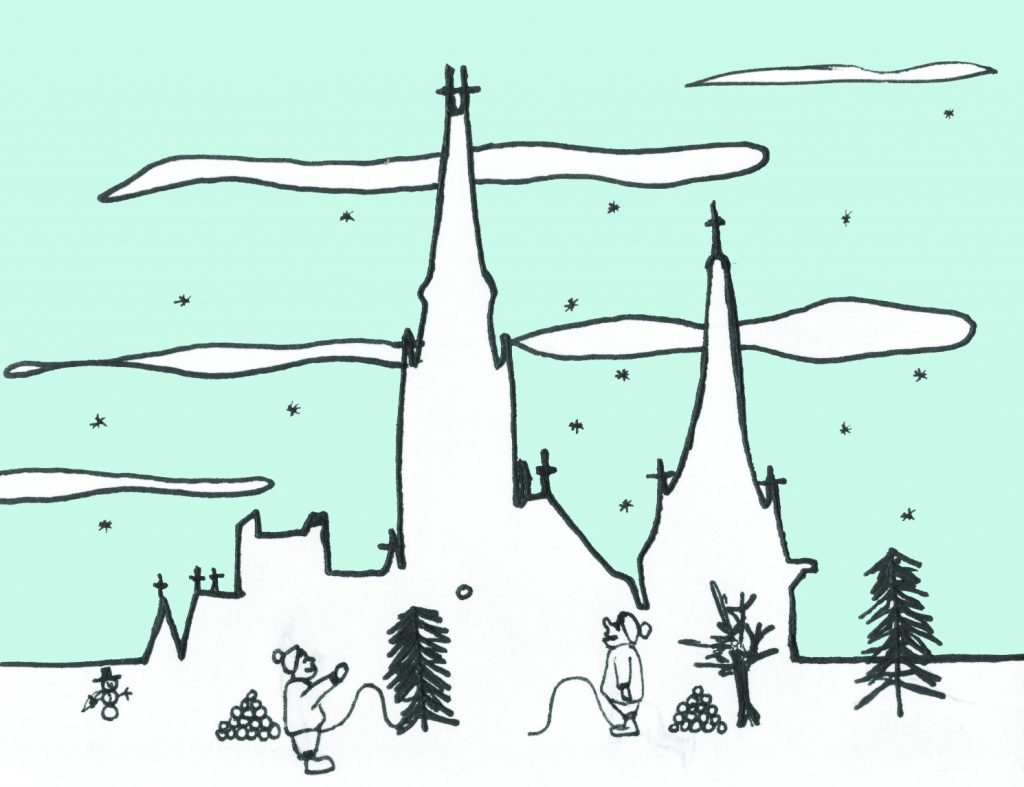I learned the value of holding the high ground during battle very early in my life. On any given snow day, my front lawn would become a war zone. Trees were valuable sources of cover, mounds of snow sandbags and valuable sources of ammo, and the driveway a cavernous point of contention between my brother and myself. Conflicts would range from whenever we finished shoveling the driveway to the onset of night. Peace treaties were perpetually negotiated at the kitchen table over hot chocolate, provided that there were a sufficient amount of marshmallows on hand to keep both sides at the table. They were promptly discarded at the first entrance into the snow the next day.
The stakes during these battles fluctuated depending on our moods. On some days, we were fighting for the fate of the world, on others, the fate of our front yard. We would spend hours fighting off invasions of imaginary battle droids, or some evil James Bond villain, or if we were extremely creative, an army of Orcs straight from Mordor. Whatever the situation, I didn’t think my life could get any better, or more intense, than those snow-filled days.
Unfortunately, I soon learned that not all of life involved throwing snowballs at invisible armies. Snow days went from enjoyable outdoor adventures to experiments to see how long I could sleep on a day off from school. Invasion of battle droids quickly took a backseat to school during the teenage years, which brought with them the required amount of angst and self-consciousness. The wonderful, innocent, naive days of yore were replaced by the be-all and end-all nature of the dreaded college application process.
As maturity slowly set in, I distanced myself from my more imaginative early years. The extensive mental preparation for Georgetown involved the acknowledgment that I now possessed sole agency for my actions, a scary thought indeed. The idea of an awkward, constantly-slightly-out-of-place person like myself adjusting to an entirely new social situation was daunting. I was told my concerns were typical, and also for naught: college was going to be “the best four years of my life.”
As the first semester of my sophomore year comes to a close, those seven words have stuck with me, like a refrain. Freshman year was an amalgam of various experiences, some great, some bad, and some I struggle to remember for reasons I would prefer not to disclose in a widely-read publication. One thing was clear, however. My formative years were far from over, as I realized that I had learned more than I ever could have asked for over one year. And yet, it hadn’t felt like one of the best years of my life.
I was disappointed in myself because I wasn’t always having an incredible time. As I was trapped in Lau for entire nights during finals, or as I sat in my room with a dearth of plans on a Friday night, or as I found myself feeling lonely or isolated, I continually asked myself if this was supposed to be the zenith of my life. Life was dominated by existential crises and questioning of my self-worth. The best years? Maybe for everyone else. Simply put, life had the high ground over me. Plus, how could college compare with the innocence of youth? Surely my days defending the world from certain doom at the hands of some Orc army (you’re all welcome, by the way) were my greatests hits.
Sophomore year was supposed to be the turning point, but instead I discovered that the sophomore slump was real, and it was happening. I still wasn’t in love with Georgetown. I had been told so many times during freshman year that I would find that moment where everything clicked and I fell in love with Georgetown. It didn’t happen. Being overwhelmed by relationships and work became the norm, to a point where I was able to adopt a numbness just to get through the day. I lost friends I never thought I would have to say goodbye to.
 But much like the rest of my experience at college, I came to realize that I wasn’t special or unique, or alone. My struggles were felt by many others, a fact that I learned through various outlets: ESCAPE, reflections at GIVES meetings, or late-night dorm room conversations. My nights staying in indulging in self-pity and hand-wringing were neither productive nor enriching. Instead, I found myself wallowing all too often, bemoaning my inability to fit in. The problem was not Georgetown, the problem was me. I had crafted a narrative in which I did not fit in on the Hilltop, and I crafted my actions to cater to this story, using it as an excuse whenever I experienced social or professional rejection.
But much like the rest of my experience at college, I came to realize that I wasn’t special or unique, or alone. My struggles were felt by many others, a fact that I learned through various outlets: ESCAPE, reflections at GIVES meetings, or late-night dorm room conversations. My nights staying in indulging in self-pity and hand-wringing were neither productive nor enriching. Instead, I found myself wallowing all too often, bemoaning my inability to fit in. The problem was not Georgetown, the problem was me. I had crafted a narrative in which I did not fit in on the Hilltop, and I crafted my actions to cater to this story, using it as an excuse whenever I experienced social or professional rejection.
At some point, I cannot say when, I realized the trick to surviving college. It isn’t the best four years of my life. In fact, it shouldn’t be. Instead, college should be looked at as the four most formative years of my life. Every belief and value I had held so near and dear in high school was questioned and strengthened or replaced. I failed at more things first semester of freshman year than I had in all my eighteen years prior.
Whether I wanted it to or not, Georgetown opened my eyes to reality. I may not have reached a point where I’ve felt completely content on campus, but part of me may not ever want to. That would mean an end to introspection and constant attempts at self-betterment, at which point I would stop growing.
This place has taught me how to constantly stay on my toes and deal with the idea that I’m not special. At least going forward I’ll be a bit more prepared for whatever tricks college, and life beyond have up their sleeves. After all, if I can defeat an army of battle droids with nothing but a few snowballs and my brother at my side, then I can handle whatever Georgetown wants to throw at me. As long as there is hot chocolate afterwards.






